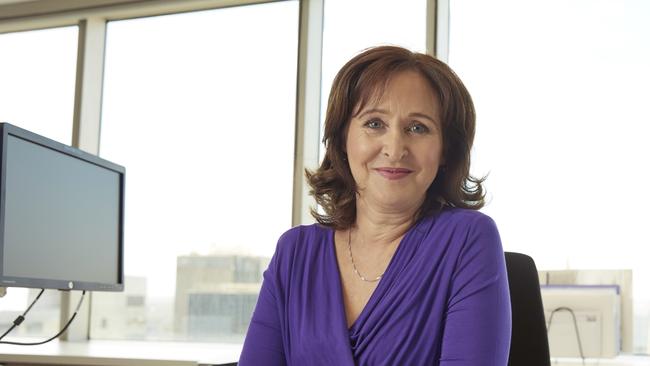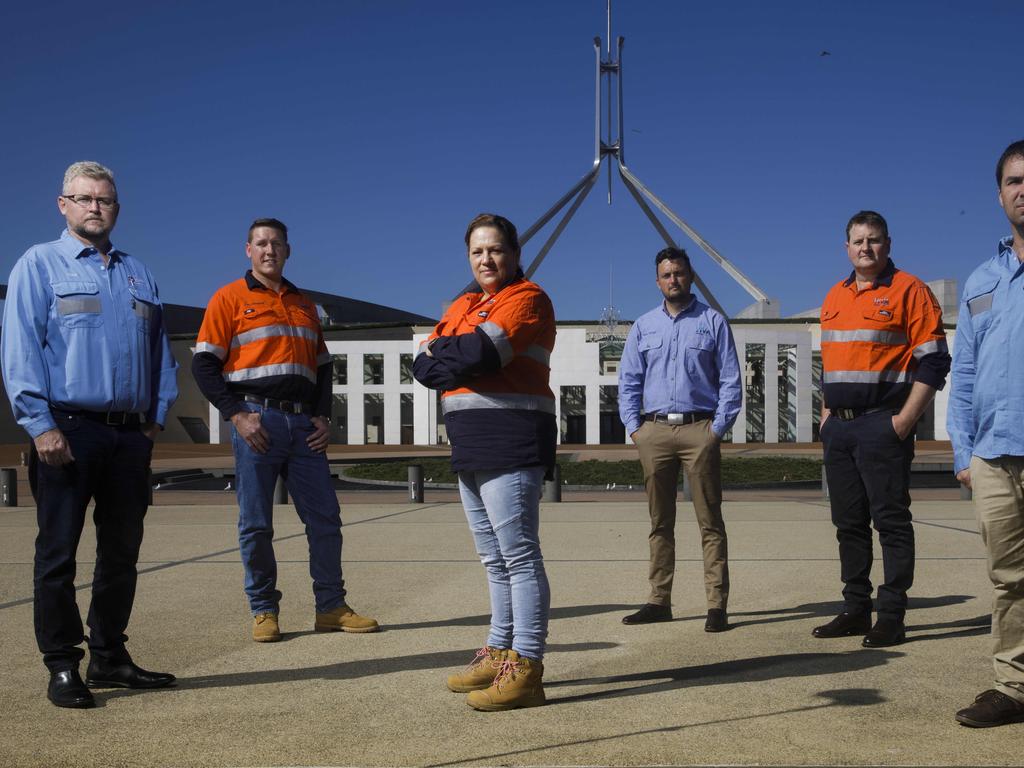
HESTA will be a cornerstone investor, putting $20m into the ring to back the mutual, continuing its investment in the healthcare sector — and in this case 22 per cent of Australian Unity’s 7000 staff, including many Hesta members.
Hesta chief executive Debby Blakey said: “As patient, long-term investors we see an exciting opportunity to invest in the fast-growing ‘care’ economy that can generate strong returns for HESTA members while helping to create growth and jobs in the industries where they work. Investing in the health and community services sector will also support a faster, higher-quality COVID recovery and the long-term resilience of our economy.”
The 180-year-old mutual has long avoided the public market, arguing the mutual members-based platform was best for its multi-year investments in aged care and health.
The instruments pay around 5 per cent, fully franked and give members a chance to vote on some activities — but not a demutualisation, and the vote is limited to one per member rather than based on your holding.
This is the first issue since the instruments were approved by federal parliament last year in an attempt to help the mutual industry build its capital without the need to become publicly listed.
The bookbuild is due to close on Wednesday after a successful broker firm auction led by financial adviser Acacia, with joint lead managers including NAB, Morgans and Bell Potter.
The money will be used by the fund, whose projects include the groundbreaking $1.5bn Herston Quarter project in Brisbane, centred around the 184-bed Metro North public hospital and including a private hospital, aged care and student and other accommodation.
Union fund battle
The Rail Tram and Bus Union is back with its attempt to take control of the RT Health fund and block its attempt to merge with HCF.
The NSW Supreme Court last month blocked the union’s first attempt but now it is proposing to use next month’s annual meeting to roll the board.
Fund chair Alan Bardwell is not surprisingly telling members that the union and the fund only have 11 per cent of members in common, meaning some 89 per cent of health fund members were not part of the union.
To be fair, 129 years ago the union started the fund to look after members’ healthcare, but time has moved on and APRA for one is keen for small funds to join larger ones to cut costs and ensure their sustainability.
This was a message former ASX chief financial officer and health fund chair Alan Bardwell took to heart, but the RTBU’s Mark Diamond is pressing on and wants to vote down all members of the board except Bruce Mackie, who is a union official.
Bardwell suggested this may be a conflict and he is right, but members get their chance to make their views known on January 28 when the AGM is due.
The fund has around $90m in capital ready to distribute.
Drug cartel case
The ACCC criminal cartel case against a small Australian company, Alkaloids, appears to follow a similar action taken by Swiss authorities last year over the drug SNBB.
The Swiss has been investigating 11 international pharmaceutical companies: three Swiss (Alchem Europe, Linnea and DCS Pharma), three German (Boehringer Ingelheim, Globe Chemicals and Transo-Pharm), three Indian (Alchem International, Alkaloids, Vital Laboratories), one Australian (Alkaloids of Australia) and one from Luxembourg (C2 Pharma).
All of these companies resell scopolamine butyl bromide to other drug manufacturers.
The drug is used for antispasmodic medications for bowel and stomach pain. It is made from the Duboisia plant which is native to Australia and centred around Kingaroy in Queensland.
The ACCC has laid 33 criminal cartel charges against the company and its former export manager Christopher Joyce.
International cartel cases often trigger global actions because one of the members filed for immunity around the world.
This case centres on the generic drug, with the allegation being minimum price settings have increased the price of the drug, which is also manufactured by Germany’s Boehringer Ingelheim.
The action comes ahead of a busy week in court for the regulator, when it learns whether the High Court will hear the PN Aurizon appeal and whether the ANZ cartel case is referred to the Federal Court, along with the James Ellis and BlueScope trial and the Epic Games case against Apple.
China overreaction
Amid the frightening Canberra overreaction to China, business goes on, as shown by talks over the sale of part of Shell’s LNG plant in Gladstone.
Shell supplies China and Japan with LNG from Gladstone, and CNOOC and Tokyo Gas are part owners of 73.75 per cent Shell operated and owned plant.
The sale is just for what is called common facilities, which is basically the wharf and some storage, but the 26.25 per cent stake in the facilities will go for around $3bn.
Talks are continuing with GIP, a global infrastructure fund or more to the point, its Australian fund. Investors in the fund include GIC, the Singapore investment fund, and CIC, the China investment fund.
This is global commerce proceeding despite the Canberra noise, which should maybe send some messages to Canberra.
Diplomacy via a loudspeaker rarely works, especially if one party is small with little political sway on the global stage.
Australia, as this column has noted, is not exactly a cleanskin in trade when you consider the 37 separate support mechanisms in place for Australian agriculture.
Many Australian businesspeople are mystified about the stance taken by the Morrison government against China, which is an important trade partner.
That doesn’t mean Australia has to bow and scrape but it does mean some careful diplomacy helps. The motto should be do more and talk less.
China, which owns a 15 per cent stake in Rio Tinto, is working on alternate iron ore supplies like the Guinea Simandou project, which in turn is 53 per cent-owned by Rio Tinto and 47 per cent by Chalco, BaoSteel others.
The project suggests that unless handled well, China may not be the reliable iron ore buyer that it is today.
Some in Canberra like Matt Canavan have suggested iron ore export controls will be an appropriate response, which shows the battle ahead to get some rationality in government circles.
The Shell Gladstone talks show business is getting on with business. Politically a circuit breaker is needed but Canberra missed the chance when Treasurer Josh Frydenberg knocked back the Mengniu takeover of Lion Dairy earlier this year against FIRB advice and just weeks after approving the Mengniu takeover of Bellamy’s.







Industry fund HESTA has backed Australian Unity’s groundbreaking $100m capital raising via the newly approved mutual capital instruments.